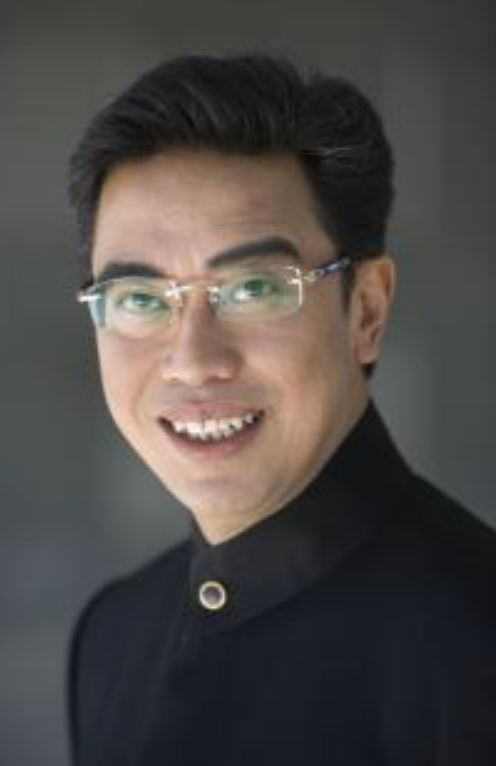 |
Dr. Ludy Suryantoro (WHO) |
By Dr. Ludy Suryantoro
The COVID-19 pandemic has revealed deep flaws in the world’s defenses against health emergencies, exposed and exacerbated profound inequities within and between countries, and eroded trust in governments and institutions. The world was, and remains, unprepared for large-scale health emergencies.
But this lesson is not a new one. For decades the emergence of new epidemic-prone diseases, conflicts, and other humanitarian emergencies has caused global panic and alarm, followed by neglect and underinvestment in health emergency preparedness, prevention, and response as public and political attention wanes.
The pandemic has exposed divisions and inequities within and between countries, and gaps in the world’s ability to prepare for, prevent, detect, and respond rapidly to epidemics, pandemics and other health emergencies. COVID-19 hit the poor and vulnerable hardest, while reminding even the most privileged that infectious diseases still have the power to upend not only health systems, but also societies and economies.
The risk of new health emergencies continues to increase, driven by the escalating climate crisis, environmental degradation, and increasing geopolitical instability, disproportionately impacting the poor and most vulnerable.
To streamline national level health security processes, the WHO has developed the National Action Planning for Health Security process. It is a country-owned, multi-year planning process that captures national priorities for health security. Since 2016, the WHO has worked closely with member states and partners to support development and implementation of NAPHS through technical instruments and advocacy for increased funding.
The Global Health Security Agenda can be a key partner for the WHO in the acceleration of the implementation of NAPHS globally.
As a vast and diverse network of experts, the GHSA reaches beyond traditional health security actors, engaging organizations and agencies that are not normally operational in the global health security space. This includes active and leadership roles for non-governmental organizations, including engagement across the initiative, leveraging those with greater bandwidth for strengthening health security. As a forum for exchanging information and best practices based on experiences across sectors, the GHSA is a space for a robust and honest peer-to-peer conversation.
Furthermore, the GHSA facilitates a closer relationship between academia and governments that can result in better policies, increased expertise within governments, more methodological capacity building approaches, and academic research that is based on real-world and practical experience.
There is a key value in enhanced collaboration between WHO and GHSA moving forward, and the form of this collaboration can cut across a number of key areas for WHO’s work on health security preparedness.
Multisectoral engagement
The WHO Multisectoral Preparedness Coordination Framework emphasizes that a holistic, multisectoral and multidisciplinary approach is needed for addressing gaps and advancing coordination for health emergency preparedness beyond the health sector. This framework provides States Parties, ministries, and relevant sectors and stakeholders with an overview of the key elements for overarching, all-hazard, multisectoral coordination for health security preparedness.
Civil military collaboration
The COVID-19 pandemic has proved a catalyst for many countries to explore ways of engaging military health services for national health emergency preparedness and response. To ensure effective civil–military health collaboration that supports health emergency preparedness interventions required to combat existing or potential threats, and for longer-term health security capacity-building, it is critical to identify pathways for partnership well before a response to a health emergency is required.
Urban health emergency preparedness
Cities and urban settings are crucial to any efforts for improved health security, and for preventing, preparing for, responding to, and recovering from health emergencies, and therefore enhancing the focus on urban settings is necessary for countries pursuing improved overall health security. Urban areas, especially cities, have unique vulnerabilities that need to be addressed and accounted for in health emergency preparedness.
In response to the COVID-19 pandemic, WHO and Member States are developing a new global architecture for health emergency preparedness and response.
The vision for a strengthened architecture of HEPR is a world that is alert and ready to respond to emerging health threats, based on the principles of inter-connected and interoperable national capacities. Strong national systems are the building blocks of an effective global architecture for HEPR, but no single country – however capable or technologically advanced – can alone prevent, detect and respond to all public health threats. Long-term readiness must be fostered through risk identification and vulnerability analysis for prevention and risk reduction. Preparedness and response must be based on the principles of equity and solidarity to ensure that capacities are strengthened first where they are weakest, and that essential commodities and countermeasures are directed to where they are most needed. As foreseen in the WHO Constitution, ‘the health of all peoples is fundamental to the attainment of peace and security and is dependent upon the fullest cooperation of individuals and States.’
HEPR emphasizes collaboration and partnerships for strengthened health security. In this context there are a wide array of opportunities for GHSA and WHO to work together and collaborate to contribute to a safer world as we move beyond COVID-19, ensuring that we are building back better for the future.
Dr. Ludy Suryantoro is head multisectoral engagement for health security, world health emergency preparedness at World Health Organization. Views expressed in this article are his own. -- Ed.



![[Herald Interview] 'Trump will use tariffs as first line of defense for American manufacturing'](http://res.heraldm.com/phpwas/restmb_idxmake.php?idx=644&simg=/content/image/2024/11/26/20241126050017_0.jpg)

![[Health and care] Getting cancer young: Why cancer isn’t just an older person’s battle](http://res.heraldm.com/phpwas/restmb_idxmake.php?idx=644&simg=/content/image/2024/11/26/20241126050043_0.jpg)

![[Graphic News] International marriages on rise in Korea](http://res.heraldm.com/phpwas/restmb_idxmake.php?idx=644&simg=/content/image/2024/11/25/20241125050091_0.gif)